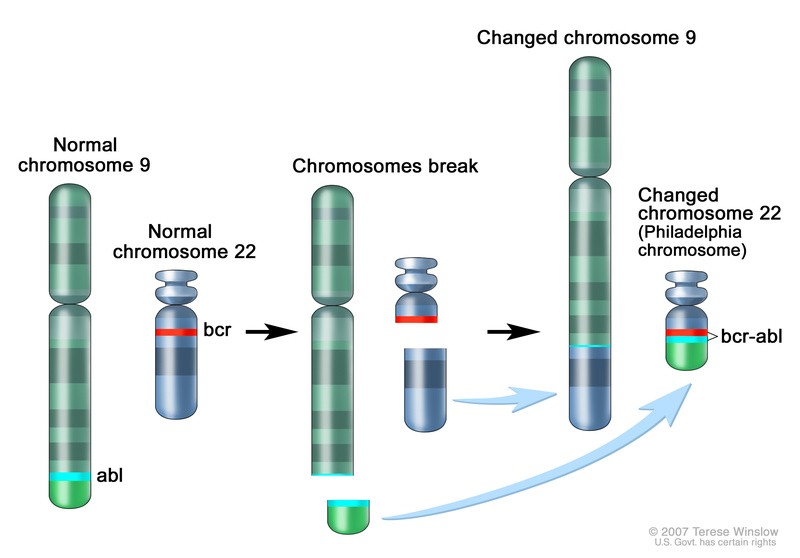The precise genetic abnormality responsible for the typical “Philadelphia chromosome” is the translocation t(9;22)(q34;q11). The result of this translocation is the formation of the fusion/hybrid gene bcr/abl. This translocation is evident in 90% of individuals suffering from chronic myeloid leukemia (CML) and 35% of those suffering from acute lymphocytic leukemia (ALL).
This test is useful for patients with hemopoietic disorders for the diagnosis and/or confirmation of chronic and acute leukemia, for evaluation of remission or relapse or even after bone marrow transplantation for evaluation of recurrence of the disorder. The translocation is detected through FISH, using specific custom-labeled DNA probes, from at least 100 bone marrow cell nuclei.
This test may also be applied in combination with:
- Karyotype analysis of bone marrow cells, combined with molecular detection of multiple chromosomal rearrangements
- Multicolor karyotype (M-FISH)
- Hybrid gene detection-semiquantitative analysis (additional information is provided)
